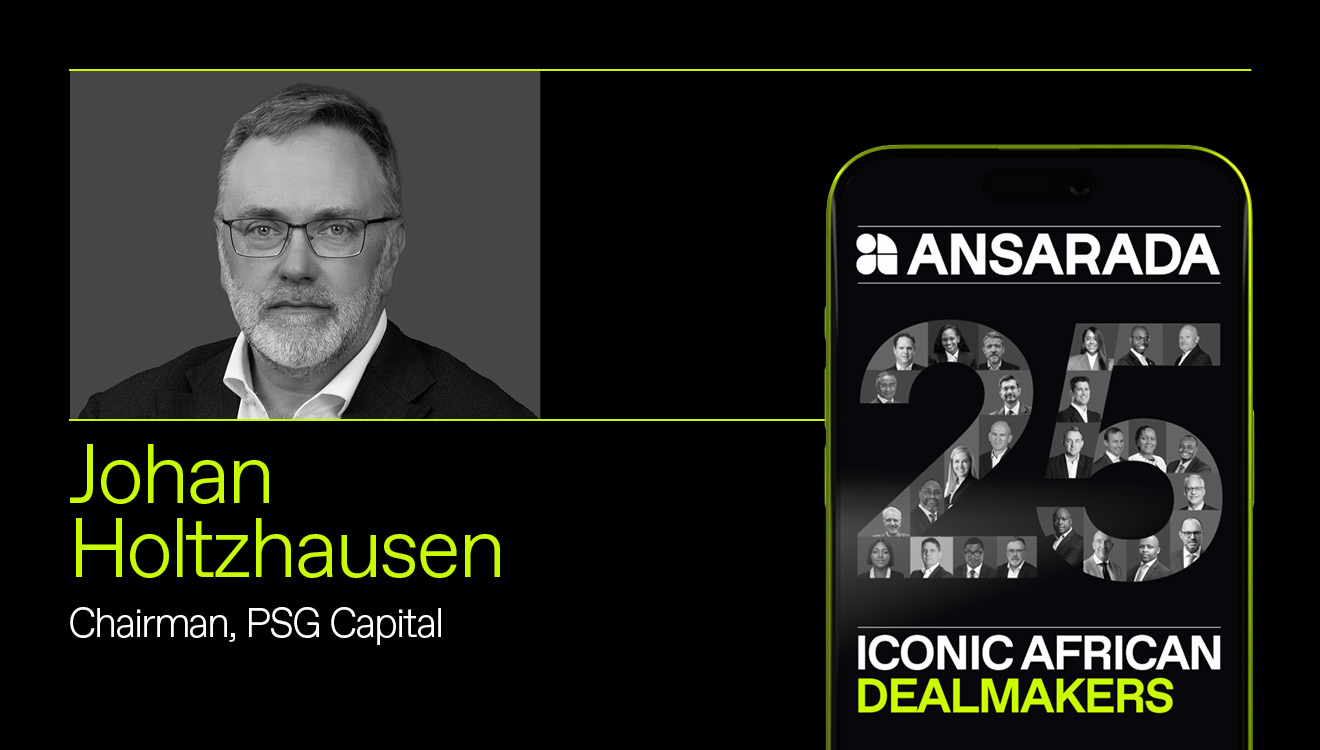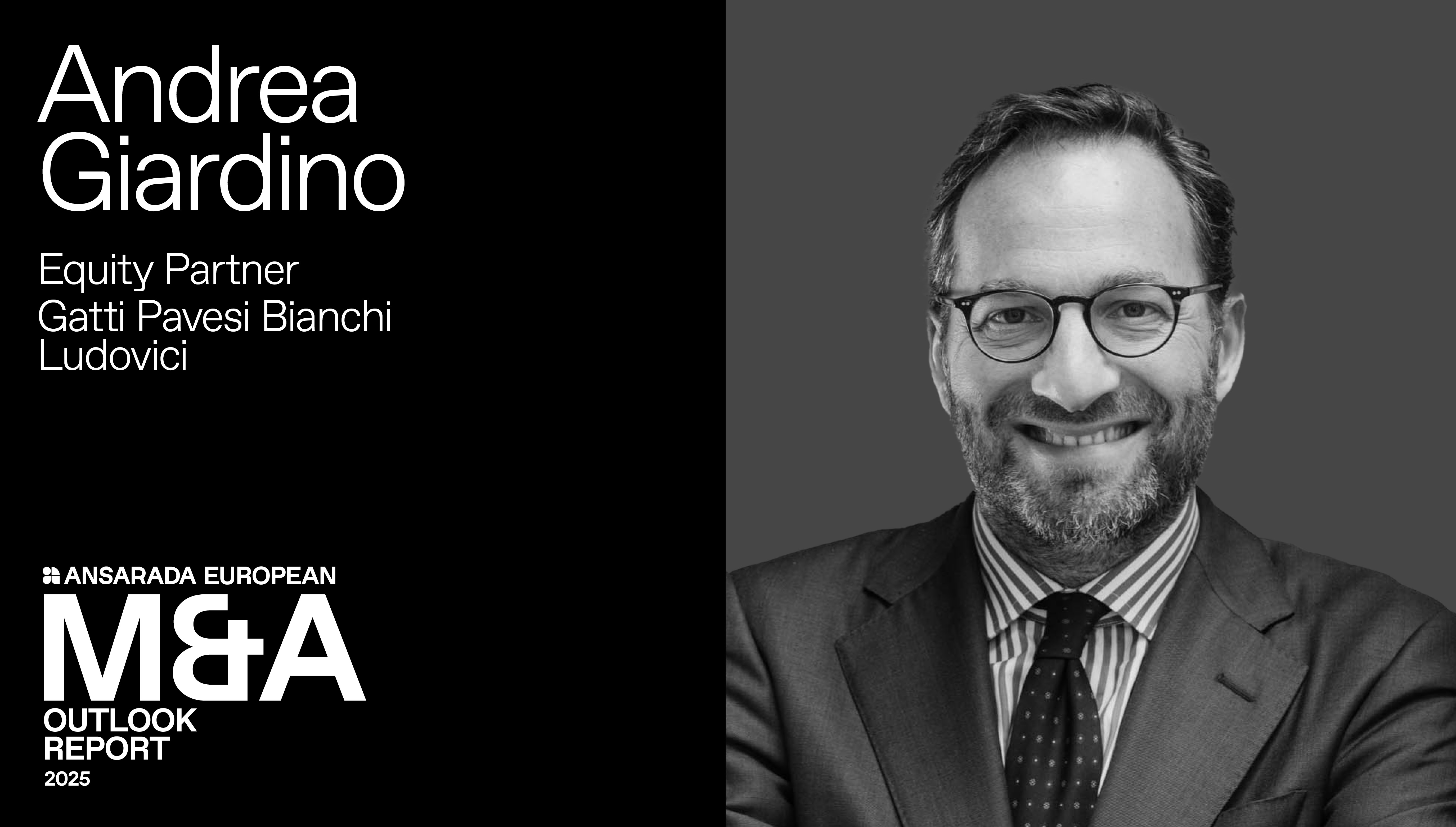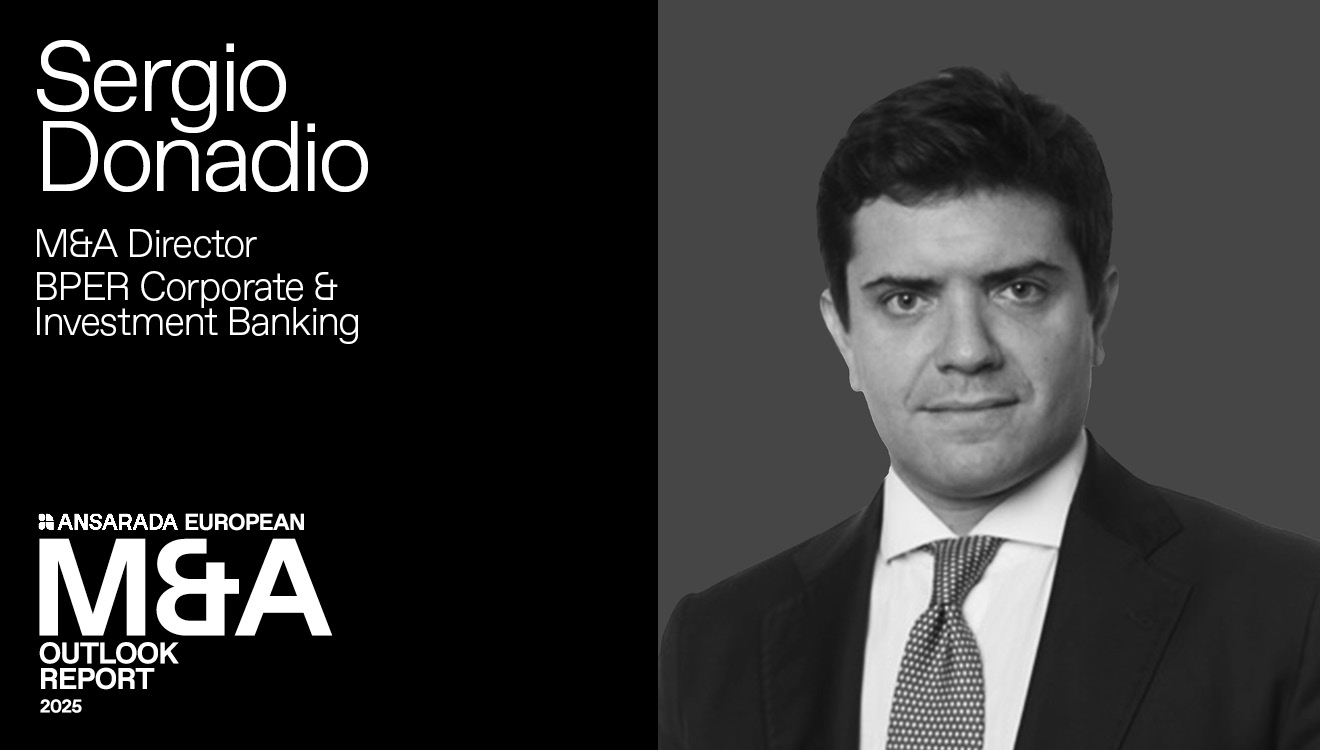Johan Holtzhausen on vintages, vision, and value in corporate finance
As Chairman of PSG Capital, Johan has been at the helm of some of the most transformative transactions in South Africa’s corporate history.
By AnsaradaThu Apr 17 2025Mergers and acquisitions, Due diligence and dealmaking, Advisors

Johan Holtzhausen is a luminary in South Africa’s corporate finance space, with a career spanning over two decades and an impressive portfolio of landmark deals, including listings, mergers, acquisitions, and unbundlings. As Chairman of PSG Capital, Johan has been at the helm of some of the most transformative transactions in South Africa’s corporate history. Known for his technical acumen and ability to navigate complex deals, Johan shares his reflections on his journey, the evolution of the industry, and his outlook for the future of M&A.
What inspired you to pursue a career in corporate finance and dealmaking?
Was there a specific moment or mentor that guided you? A colleague once told me, “One day out of corporate finance is one day lost.” I respected his opinion greatly and followed his advice. He was absolutely right— corporate finance is an exhilarating field. It’s much like winemaking: sometimes it requires gut instinct, but more importantly, it demands a strong, capable team to produce outstanding results.
That’s an interesting analogy! In the context of M&A, how would you rate 2024 as a “vintage year” for deals?
2024 exceeded initial expectations. The JSE is closing the year with ten listings, which is commendable compared to other markets like the LSE. Some transactions achieved strong exit multiples, so while it might not be a top-tier vintage, it’s certainly a good one.
Over your career, you’ve handled some of South Africa’s most intricate deals. What principles have guided your approach to maintaining consistency and success?
The key is to remain calm and focused while keeping emotions out of the equation. Fairness and receptivity are equally important. These principles have helped me navigate complex transactions and build trust with all parties involved.
Can you share a particularly challenging deal and the lessons you learned from it?
The Capitec unbundling stands out. It involved multiple phases and required careful consideration of shareholder, regulatory, and stakeholder dynamics. Transactions like these reinforce the importance of maintaining a “helicopter view” to understand how even minor elements can have significant ripple effects. It’s a real-world example of the butterfly effect in action.
Your leadership during the PSG Group restructuring has been widely praised. What was your approach to managing such a complex transaction?
The PSG Group restructuring was multifaceted and involved coordinating numerous stakeholders, including attorneys, auditors, and various boards. My approach was to instill stability, trust the process, and ensure clear, honest communication with all parties. Transparency and meticulous project management were crucial to its success.
Another significant transaction was PepsiCo’s acquisition of Pioneer Foods. How did you approach this deal, and what were its broader socio-economic impacts?
The PepsiCo-Pioneer Foods deal was complex but rewarding. One of its standout features was the unprecedented five-year job security guarantee for Pioneer employees. This, along with an innovative share scheme, ensured the deal had significant socio-economic benefits. It was a win-win transaction during a challenging political climate.
Over the last 25 years, what major trends have shaped South Africa’s M&A landscape, and how have they influenced the industry?
The increasing complexity of transactions due to regulatory developments is a significant trend. This has raised the risk of deal fatigue and failure, making it essential to have the right team and expertise. If dealmaking were easy, everyone would do it!
The Vodacom-Maziv transaction highlighted regulatory shifts. Do you see this as a positive development for the industry?
Minister Patel’s intervention may signal a more balanced regulatory approach, which is essential for attracting foreign investment. Regulation must strike the right balance—it’s necessary but shouldn’t stifle growth or deter investors.
Where do you see the greatest opportunities for South African corporates in M&A today?
Opportunities exist in the property sector, where consolidation is still viable, and in tourism, which holds significant growth potential. Additionally, mid-market transactions are gaining traction due to their relative simplicity. Sectors like green infrastructure and African water projects also present exciting opportunities.
How do you see advancements like AI shaping South Africa’s M&A landscape in the next decade?
AI will enhance efficiency by speeding up processes and improving accuracy. However, the human element will remain indispensable for large, complex transactions. Personal interactions often provide insights into organisational culture, which can be pivotal in closing deals.
Lastly, what advice would you give to aspiring dealmakers?
Patience and determination are essential. Stay positive, even when deals fall through for reasons beyond your control. Keep learning, remain persistent, and remember: the extra mile is never crowded.


